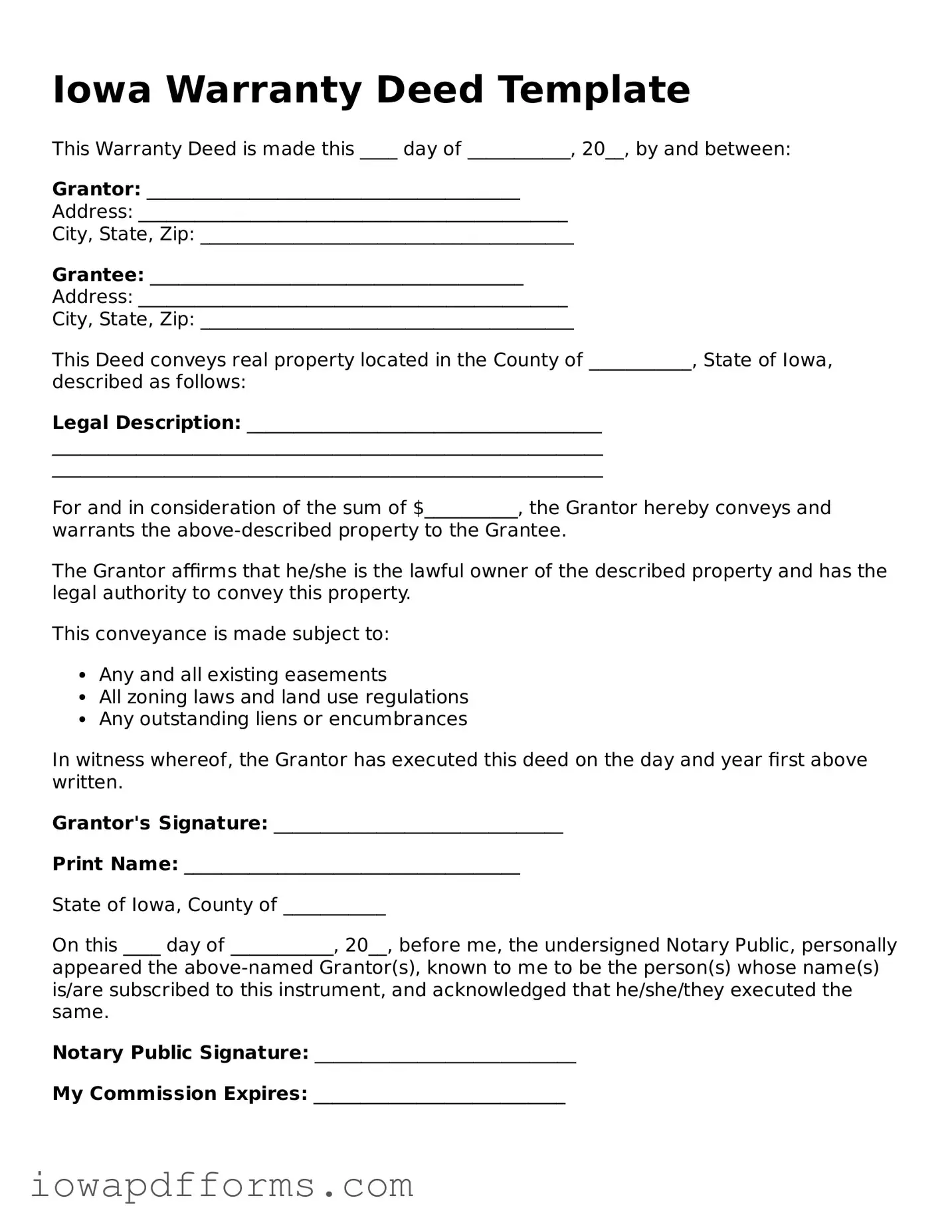Blank Deed Form for the State of Iowa
The Iowa Deed form is a legal document used to transfer ownership of real property from one party to another. This form outlines the details of the transaction, including the names of the parties involved and a description of the property. Understanding the requirements and implications of this form is crucial for anyone engaged in real estate transactions in Iowa.
Fill Out This Document Now

Blank Deed Form for the State of Iowa
Fill Out This Document Now

Fill Out This Document Now
or
Free Deed
Fast and easy form completion
Edit, save, download — complete Deed online today.